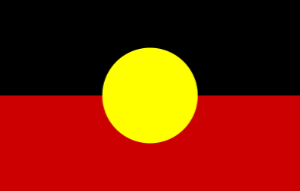When guilt tarnishes the magic of memories
Like all human emotions, guilt can be positive or negative. The ability to feel guilt gives us a conscience that helps us to be sensitive, and to resist, modify or regret behaviour that causes harm to others, and at times, to ourselves. Without that capacity we might be labelled sociopathic or psychopathic.
Guilt, in small doses, is used by loving parents as they encourage children to be empathic, to take responsibility for their actions, and apologize for misdemeanors. When apologies result in genuine forgiveness, children are more likely to internalize positive rules of relating and behaving that enhance the quality of their family and social life.
Guilt is used in a similar way in some religions, and to control and contain in others, its impact sometimes intensified by the addition of large doses of fear. Guilt and fear are used to sell some political ideologies, and are certainly used by advertisers bent on selling particular products.
In the recent pandemic we witnessed the use of guilt, fear, altruism and punishment working hand in glove to influence our decisions around vaccination, isolation and hygiene. Most of us made choices at the time that we believed were the best way to protect those we love and the wider community. None of us wanted to feel guilty.
In summary, the socializing use of small doses of guilt can be positive if induced for the right reasons, by the right people, and in situations which don’t deny the rights of individuals.
Guilt in bereavement
Re-living happy memories can be invaluable as we learn how to love in absence. However, intense feelings of guilt can tarnish the magic of those memories for both adults and children.
When a loved friend, relative or colleague dies, it’s common to feel mild pangs of guilt as we celebrate significant milestones or simply enjoy the privilege of a life they no longer share.
More pronounced guilt may stimulate self-questioning along the lines of ‘Was it my fault? Did I contribute to X’s death? Did I fail to notice an important sign? Should I have insisted X see a doctor? Do I have any right to be happy?’
Our guilt might simply be a way of saying ‘ I would have done anything to keep X alive’. Or perhaps, ‘I wish I’d been able to do more to help.’
If we begin dating or consider re-partnering after the death of a spouse, feelings of disloyalty or guilt can have either a positive or negative impact. From a positive perspective, they can help us to slow down until we can think very carefully about who might be appropriate to include in our life. Guilt (in manageable doses) can help us feel close to the person we love, as if we’re still involved in their care, but can become negative if it inhibits our ability to form new relationships and to be fully engaged in life.
Some bereaved people are more prone to anger than guilt and may blame someone, or something else, for the death of a loved person. Questions might be along the lines of ‘Why didn’t he/she/they do something to prevent this happening?’ When those questions are involved, people may appropriately, and sometimes inappropriately, seek financial or emotional compensation from whoever they hold responsible. Other folk will use anger energy in a positive way to campaign for social, legal or political change.
Feelings of guilt or blame become a problem when they are intense, prolonged and cause increasing distress for ourselves or others. At that point it may be advisable to talk to a counsellor.
What can a counsellor do?
It depends. First, on the competence of the counsellor, and second, on our willingness as a client to be introspective, to examine the rationality of our thoughts and feelings, and to be willing to change if necessary.
The aim of counselling is not to remove the word guilt from our vocabulary or from our experience. What it can help us do is reduce the intensity involved in the feeling and teach us how to interrupt debilitating, fruitless circles of rumination. We might be helped to reframe guilt as ‘regret’ and symbolically apologize to the person we love for not being able to prevent their suffering or death.
If re-framing doesn’t help, we may need to examine the rationality of our thoughts. Questions such as ‘Am I truly guilty of failing to do something important, or of an action that proved to be destructive?’ If the answer is YES, we might ask ‘what do I need to do to be forgiven?’ A good counsellor can help us find the answer.
Suicide tends to stimulate feelings of guilt in most of us. We may feel guilt as individuals, as organizations or institutions, and as social groups. Could we have seen the signs and prevented the death? Did we contribute in some way? What do we need to do to make amends? How can we prevent another suicide death? In counselling sessions we can be helped to find creative ways of easing our angst.
From a personal perspective
When my daughter died as a result of suicide, like most parents,
I felt almost as overwhelmed with guilt as I did with sadness. Self-questioning enabled me to own my contribution to her vulnerability and to express regret in my own way, but that didn’t seem enough.
Eventually, I asked myself the question ‘am I the only person responsible for her depression and death?’ I devised a pie chart of named segments to which I attributed a % of responsibility – people, relationships, places and events. And finally, I did the same for my daughter’s role in her own life and death. She too had the responsibility of choices. Once I was no longer the only name in the pie chart the burden became manageable, enabling me to live a full life in which I could honor her and continue to contribute to the well-being of others.
In summary
Guilt, in small doses and reframed as regret, can be part of our lifelong connection to those we love who have died. It can remain one of the ways we express the impact of loss without allowing the feeling to detract from our ability to honor their life by living ours.
Guilt in large doses can be crippling, but, if we share it around a wee bit by dividing it into realistic slices in a pie chart, we can learn how to live with it and continue to make valuable contributions to life.
If the burden of guilt is tarnishing the magic of your precious memories, make an appointment to talk with a bereavement counsellor. The team at ‘A Friends’ Place’ can provide invaluable help. They can be contacted by phoning 1 300 654 556, by emailing [email protected] or using the outreach service at [email protected].
An NCCG Blog
By Dianne McKissock OAM
Co-founder, National Centre for Childhood Grief
November 2024





